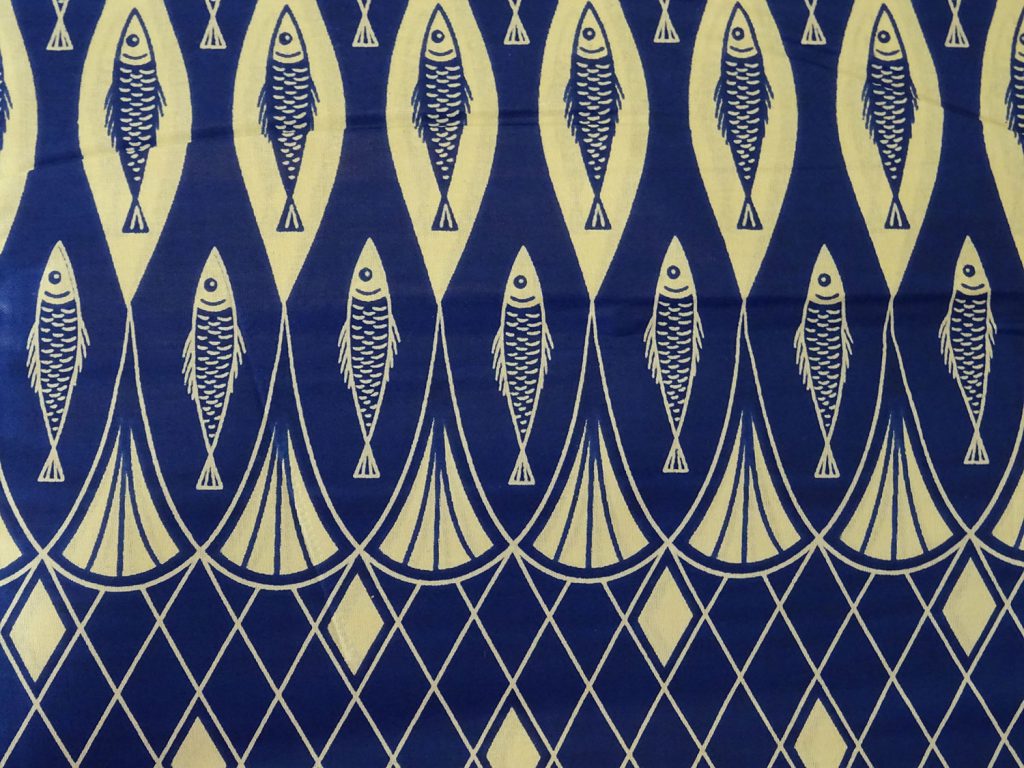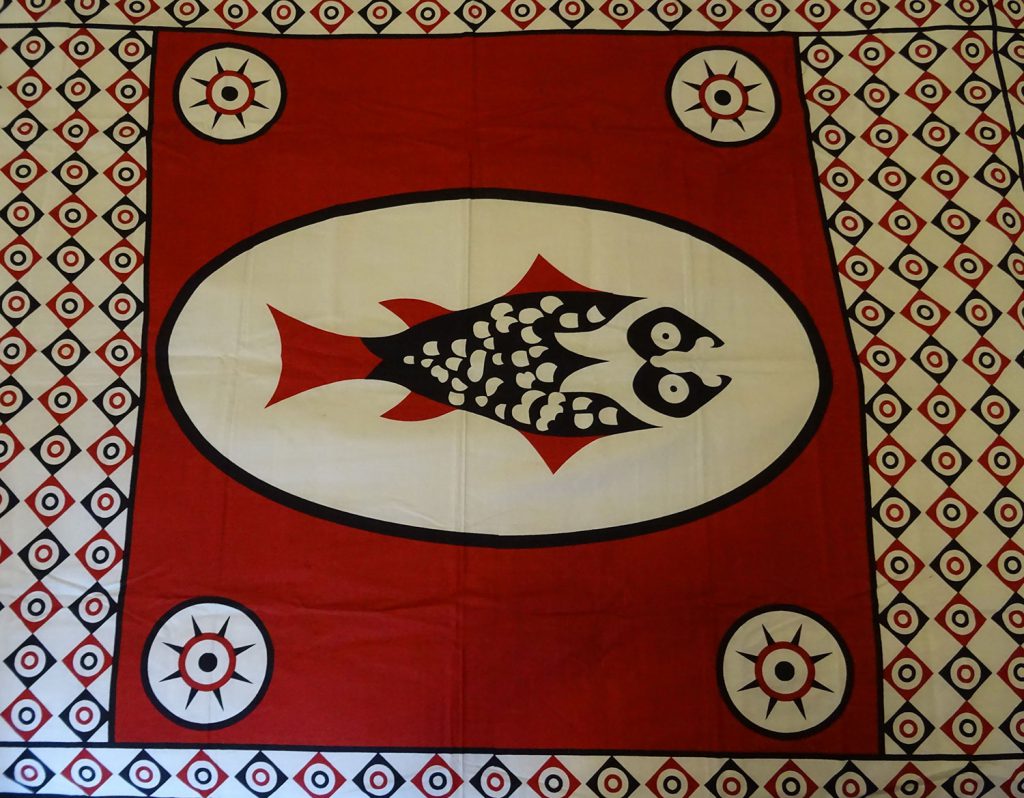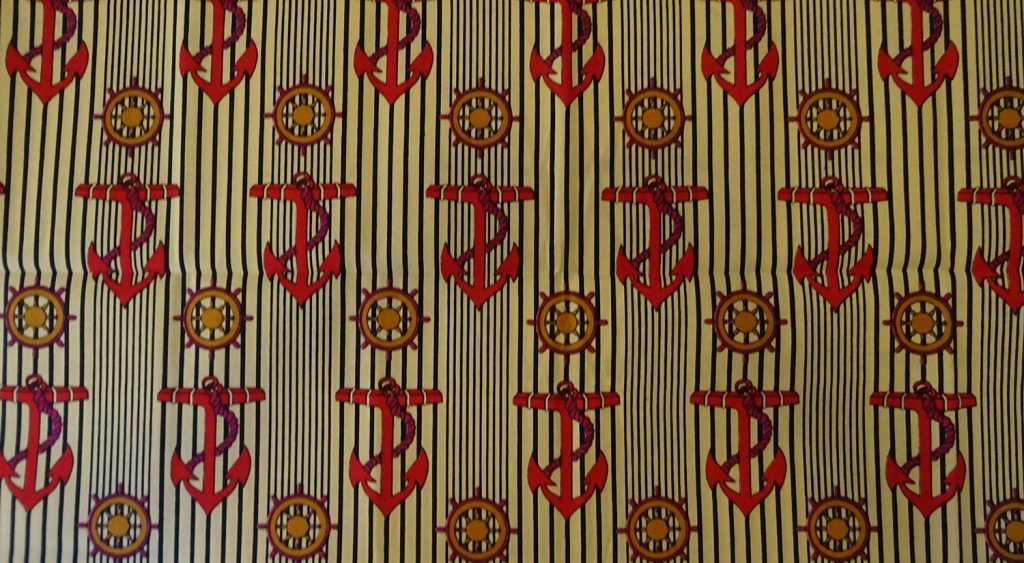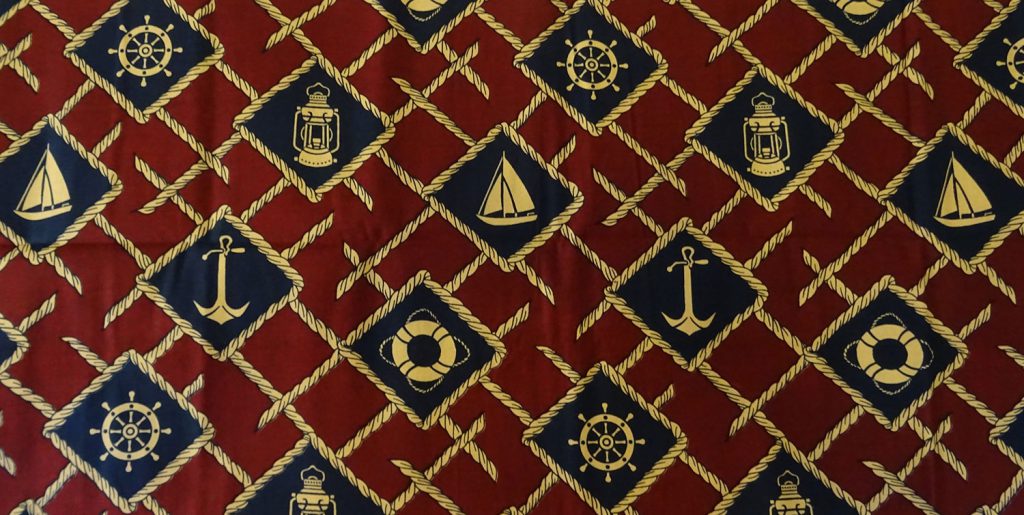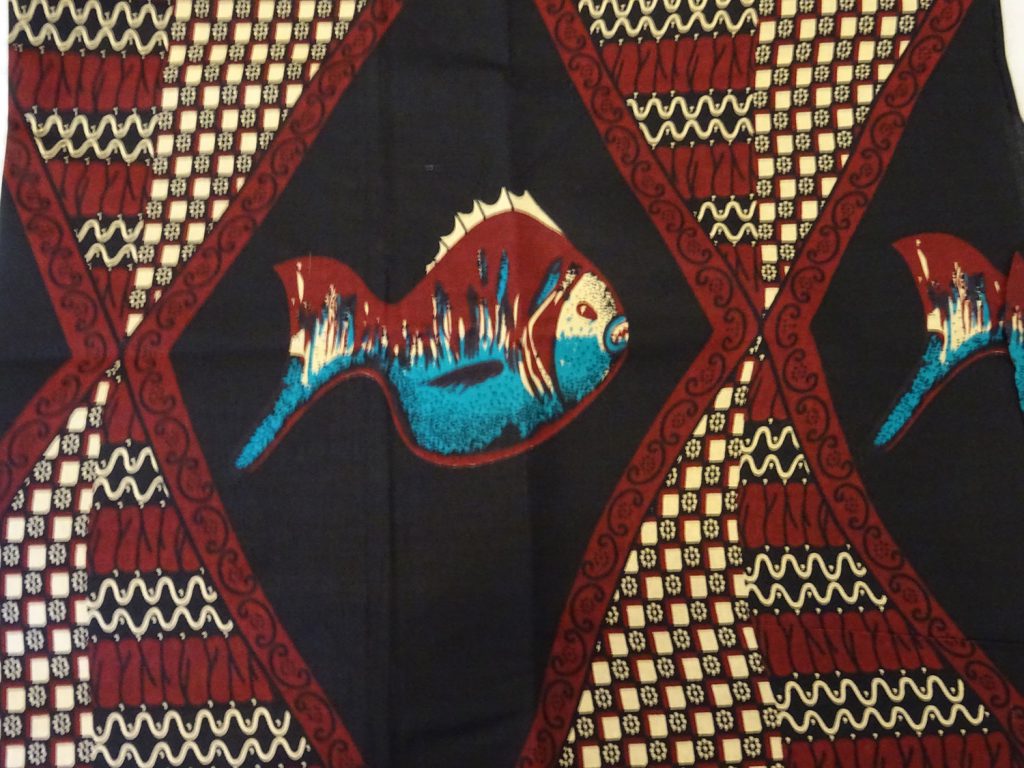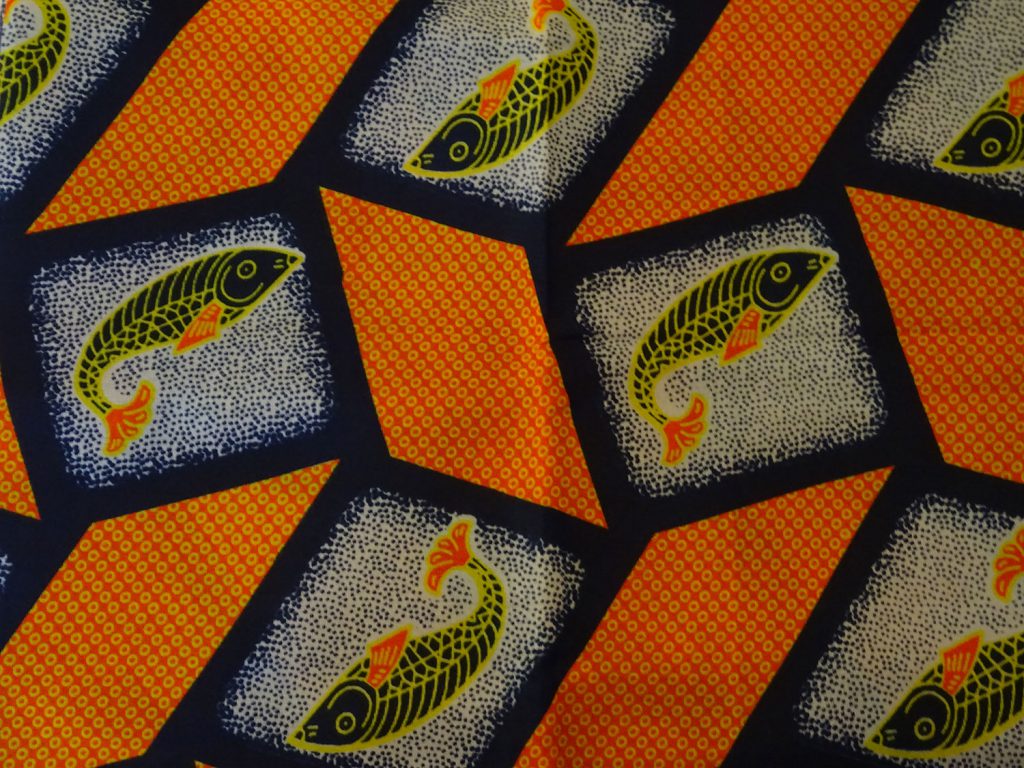Women’s Identity, Textiles and Heritage: Coastal Style in Mozambique (WITH Coastal Style) is a one-year project (June 2019-June 2020), researching and promoting women’s identities and concerns linked to marine heritage in Katembe District, Maputo, Mozambique.
The project is an international collaboration between National Museums Scotland, the Fortress Museum (with Eduardo Mondlane University), and the Fisheries Museum in Maputo, the capital city of Mozambique. The project is funded by the Arts and Humanities Research Council’s Rising from the Depths Network in the United Kingdom.
In July, I travelled from Edinburgh to Mozambique for two weeks, on the first of three project visits to undertake start-up meetings with our project partners at the Fisheries and Fortress Museums, launch the project and begin the research.
During the first week we held a public event at the Fortress Museum, an imposing 19th-century building located on the city’s busy waterfront. The event was well intended by a variety of interested groups, including artists, designers, and academics, and at the last minute I was invited to promote the event on local radio.
Co-Investigators Moises Timba from the Fortress Museum, Valda Marcos of the Fisheries Museum and John Giblin from National Museums Scotland introduced the interests of the project partners and Professor Paul Lane and Dr Solange Macame from Rising from the Depths introduced the aims of the network and the scope of the fascinating projects underway along the east African coast. Also present were Project Research Assistants based at Eduardo Mondlate University, Claudio Mondlate and Emilia Machaieie.
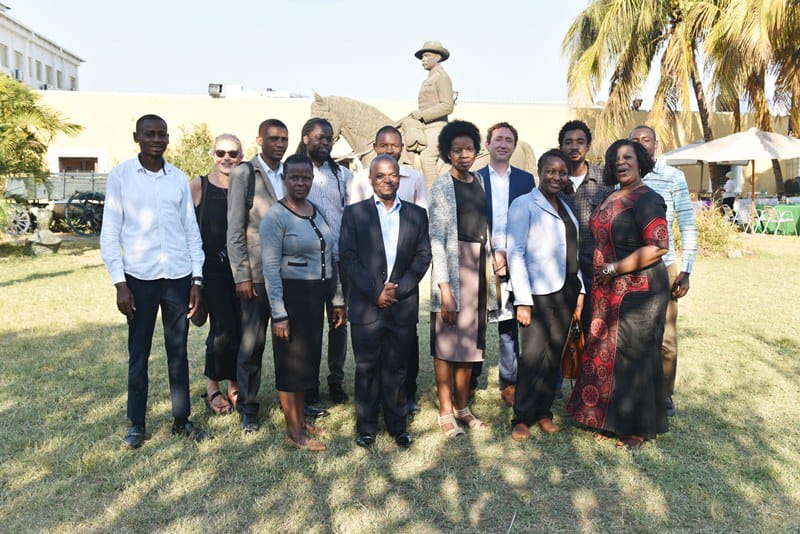
I provided a detailed overview of the project background, aims and outcomes, which seeks to contribute to knowledge of marine cultural heritage (MCH) on the eastern African coast and identify ways, in times of change, that MCH can be utilized to build social cohesion. This project identifies the fundamental role of textiles and dress in the development and maintenance of identity, as expressions of the connections between people and place. It takes as its focus the role of the Mozambican capulana printed cotton cloth as markers of female identity and as archives of women’s histories and memories.
As a symbol of Mozambican heritage, capulana have been preserved and passed from one generation to the next and with them the stories of the women who wear them. The project will focus on collecting these stories from the women who live and work among the six fishing communities of Katembe, situated on the southern bank of Maputo Bay.
The projected urbanization of this region following the opening of the suspension bridge in 2019 directly linking the capital to Katembe by road, and cutting journey time into South Africa, will impact on material practices and living traditions among women in these coastal communities. Through the research, local women will have the opportunity to share, not only information relating specifically to their material heritage, the capulana, but also their experiences related to life in this coastal community, and this, amongst other project outcomes, will be presented to the community and wider audiences through exhibitions in Maputo and Katembe.
Over thirty guests were present at the launch. These included students in tourism, journalism, heritage and the arts, fashion designers and representatives from ISAC (Higher Institute of Arts and Culture) and CCBM (Centro Cultural Brasil-Mozambique), the media and the museum sector. A lively question and discussion session followed the presentations, relating to issues of Mozambican material culture, heritage and identity.
Conversations continued over the delicious accompanying lunch provided for guests, set out under the trees in the grounds of the Fortress. Huge thanks are due to Oswaldo, Sigone and Ed for their excellent language translation skills.
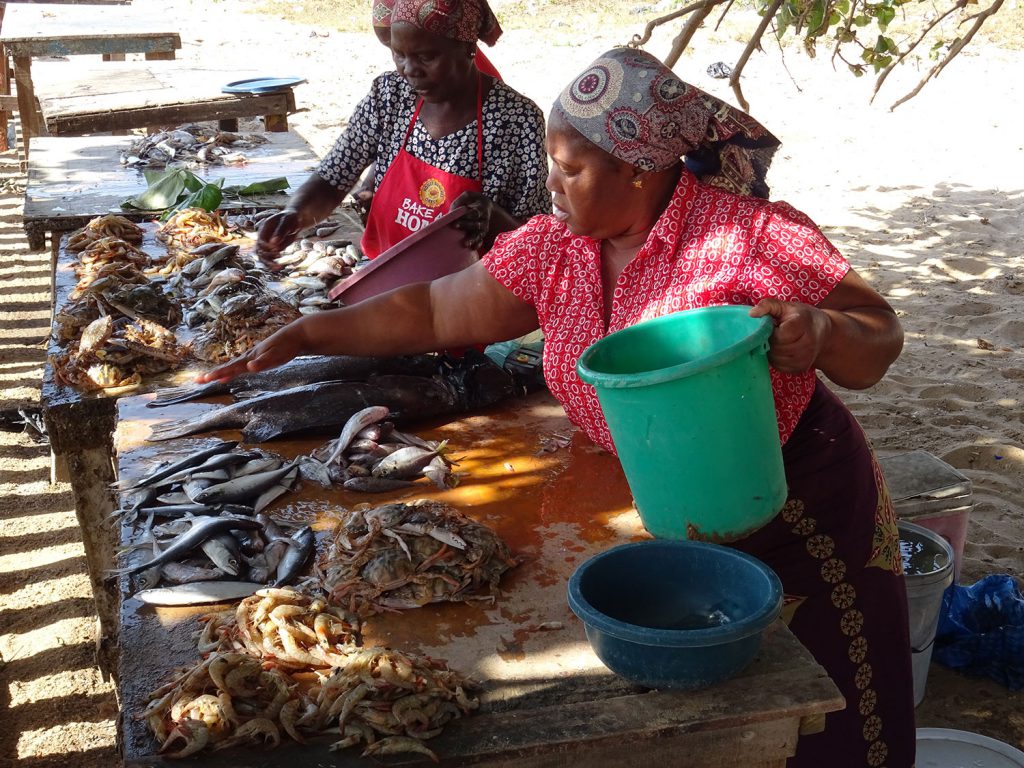
During the second week in Maputo, we undertook a visit to the district of Katembe, the focus of the research. Here, with the support of the President of the Community Council of Fisheries, we held the first of six planned focus groups with women from the fishing communities.
In the shade of trees close by the jetty of Maputo-Katembe ferry, we met a small group of women who had agreed to take time out from attending their stalls of fresh fish and seafood to share fascinating insights into the role of the cloths in daily life, in celebrations and as indicators of religious and political identity.
We are interested to understand whether certain coastal themed designs have any cultural significance for coastal communities, and a distinctive seashell design was recognised from the photographs we showed from the National Museums Scotland collection of capulana from the 1990s. They also confirmed that there were designs shared and worn by women in the community, of which we will learn more during further individual interviews.
Interestingly, we were also told that another item of Mozambican clothing, the lenço, a patterned headscarf which has an even longer history of use than the capulana, is obligatory dress for the fish sellers, a requirement of health and safety regulations. From this first discussion I feel sure there are many more insights to come and I am particularly interested to hear the response of the younger generation to their clothing traditions as we progress.
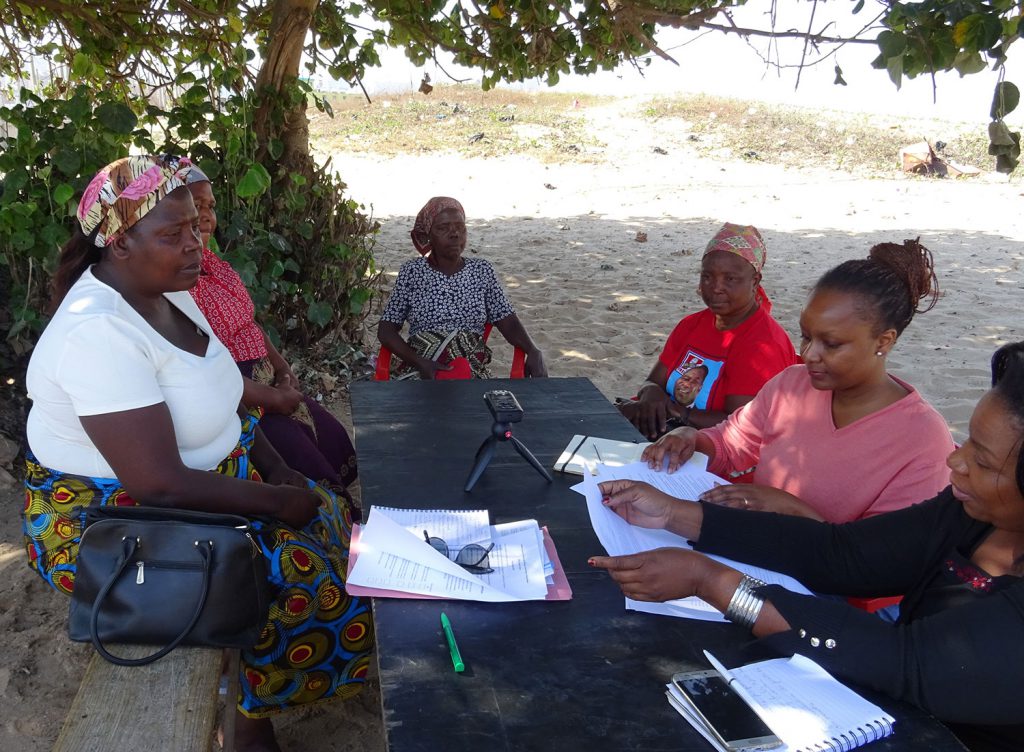
Following the meeting, the team travelled along the coast to connect with other fishing communities in Katembe district, where they will continue the fieldwork in the next few months. I return in November, when we will begin to develop the planned project exhibitions, one at the Fortress Museum and another community travelling exhibition. Interesting and exciting times ahead!
The collection of project-inspired coastal-themed capulana cloths has also begun for the Fisheries Museum, as a new resource for visitor engagement, and to add to the National Museums Scotland collections. Check out these great contemporary designs, purchased in Maputo.
You can find out more about the WITH Coastal Style project here. Look out for further project updates from all the team.

